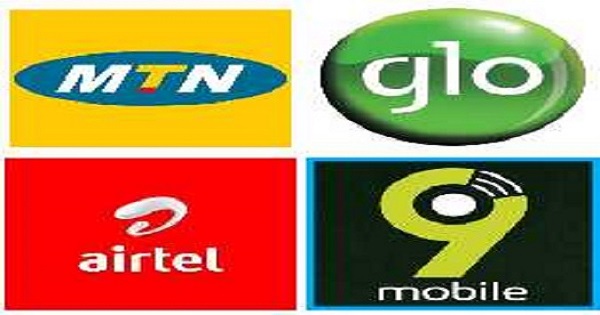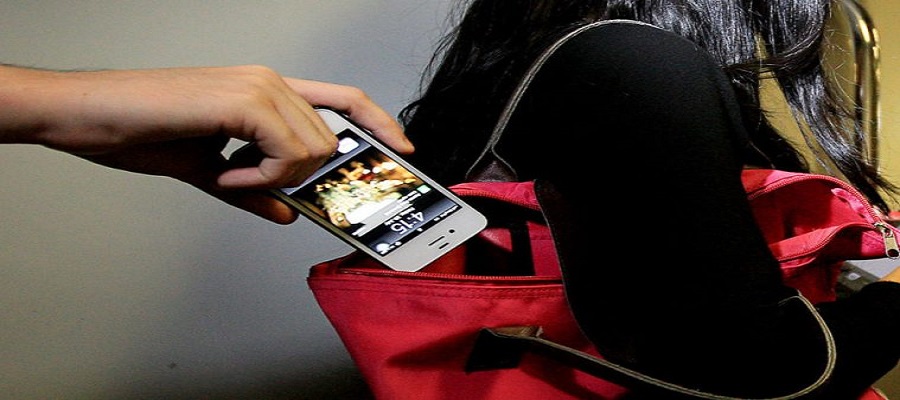Telecom
RoW: State Govts Demand N600Bn from Telcos

Telecommunications companies licensed to deploy broadband infrastructure across the country will have to cough out about N600 billion in Right of Way (RoW) charges to the 36 states of the federation.
New Telegraph reported that the fee may be the next big hurdle to cross for Nigeria to achieve ubiquitous broadband.
This amount is calculated based on the recent declaration that Nigeria requires 120,000 kilometres of fibre to achieve nationwide broadband coverage and an average of N5,000 per meter of fibre being charged by states.

This sum is, however, conservative considering the fact that some states, according to the Nigerian Communications Commission (NCC), are charging as high as N25,000 per meter of fibre.
The charges are also in defiance of a 2013 National Economic Council (NEC) recommendation of N145 per meter fee for Right of Way across states.
This recommendation was made as part of solutions towards ensuring that Nigeria achieves the 30 per cent penetration target set out in the National Broadband Plan.
According to a World Bank study, a 10 per cent point increase in fixed broadband penetration would increase Gross Domestic Product (GDP) growth by 1.21 per cent in developed economies and 1.38 per cent in developing ones. With this realisation, Nigeria came up with a broadband plan to ensure the country benefits from the global digital economy, but the plan is being dogged by myriads of challenges among which RoW is prominent.
Speaking on the current challenge with RoW, Prof. Umar Danbatta, executive vice chairman, NCC said states and in some instances, local governments, constitute stumbling blocks to fast deployment of broadband infrastructure.
According him, all Nigerian citizens are supposed to have access to broadband services, no matter their position in the society and no matter where they are, but efforts to achieve that are being frustrated by high RoW fees.
“It is unbelievable that in a country where we have a NEC document on RoW, which specifies what should be charged for a meter length of fibre deployment as N145 only, telecommunications companies are subjected to charges between N5,000, N6,000 and N25,000 by states and local government. This is really draining the efforts we are making to deploy more infrastructures,” he lamented.
Danbatta noted that the NEC recommendation, which covers the period between 2013 and 2018 is not being respected by states and pointed out that if the states had realised that the recommended charge is not in tune with the current economic realities, they should have called for a review, which would ensure that another considerable uniform fee is fixed, rather than charging indiscriminately. According to the EVC, Nigeria currently has about 38,000 kilometres of fibre, whereas, the country requires 120,000 kilometres to achieve pervasive broadband nationwide.
“One of the ways to improve quality of service is to build capacity by deploying more infrastructures, but with the challenge of RoW, service quality is affected. This is a nationwide problem and we are still talking to the states highlighting the importance of pervasive telecommunications,” he said.
Aside the Right of Way charges, telecommunications companies in the country have also been lamenting multiple taxation being introduced by states. As at the last count, the number of taxes telcos are paying across states have risen to 38.

Also speaking, Mr Olusola Teniola, president, Association of Telecommunications Companies of Nigeria (ATCON) said the country would not be able to achieve its 30 per cent broadband target with the current RoW charges across the country. “Untill the states realise the economic importance of telecommunications infrastructure and change their focus on IGR growth to economic development, we will not move forward,” he said.
Besides, Teniola said ATCON as an industry association would also continue to advocate and sensitise governments on the need to remove the RoW and multiple taxation barriers.
As part of its efforts to fast-track deployment of broadband infrastructure, , the Commission had, two years ago, licensed two infrastructure companies (InfraCos), MainOne and IHS to deploy broadband infrastructure in Lagos and North Central respectively.
However, due to the Right of Way challenge, neither of them has been able to roll out as expected. While the regulator has just licensed another four companies to cover other regions, IHS is said to have returned its own license.
Telecom
NCC Asks Consumers to Monitor Data Usage to Authenticate Consumption

Nigerian Communications Commission (NCC) has charged the over 174 million telecoms subscribers in the country to constantly monitor their data usage to authenticate their consumption level.

This follows concerns being raised by telecoms consumers about the rapidity of data depletion on their devices.
The Commission particularly enjoined the consumers to always contact their service providers to make requests for cases of discrepancies noted in their data usage.
While the consumers are expected to contact their service providers to request for their usage history/statement where inconsistency exists in their data usage as first step, the Commission said they may also escalate such issues to the Commission through its toll-free Number 622 and social media platforms, especially if their requests are not satisfactorily handled.
The Commission, which also made some clarifications regarding the concerns being raised by the consumers around data usage, said the need to inform the consumers on their concerns is part of its commitment to protect and appropriately inform and educate the telecom consumer on industry issues.
Making further clarifications around data speed and usage, the Commission said data speed is the speed at which data is transferred between two devices, measured in megabits per second (Mbps or mbps), stressing that given the spread of Internet services and the immense investment in the sector, data rates have continued to increase and users may be unaware of how to measure data speed.
The telecoms regulator explained further that websites such as www.fast.com also provide an easy way for consumers to measure Internet speed on any device at any location.
“The higher the data speed, the quicker pages load-downloads and uploads-occur and expectedly, the quicker data bundles are exhausted. So, as telecom consumers are able to do more on devices in less time, some consumers’ devices & network service providers make it possible to limit data speed to help users manage data usage better.
“In any case, most devices now include functions to measure data used by devices and it is imperative that users monitor same to authenticate data usage, such as applications left running on devices. Therefore, where discrepancies occur users may contact their service provider to request for their usage history/statement. If request is not dealt with satisfactorily then, users can contact NCC by calling 622 or engage the Commission via its social media platforms”.
It added that the data usage experience is a function of location, network equipment and users connected in a particular location.
Telecom
Phone Theft: AMCODET Urges Mandatory Registration @ Point of Purchase

Association of Mobile Communication Device Technicians of Nigeria (AMCODET), has called on the Nigerian Communications Commission (NCC) to make it mandatory for mobile phones to be registered at the point of purchase.

According to Kehinde Apara, president of AMCODET, implementing this registration process would significantly help in combating phone theft and assist in locating stolen devices.
Apara, made this appeal in an interview in Lagos on Monday.
He stated, “Registration of mobile phones will reduce theft to the barest minimum, as it will be difficult for thieves to sell registered stolen phones.”
Apara explained that the registration of new phones would also help to reduce the harassment faced by technicians by security agencies.
“So many of our members have been labelled accomplices in theft cases, because customers bring stolen phones to them to repair. We believe this is unfair to such innocent people,” he said.
He went on to highlight that the NIN-SIM linkage, which was originally an idea brought forward by AMCODET, was created to curb insecurity and theft.
However, Apara pointed out that “It is not enough.”
He stressed the need for further measures to ensure the proper registration of mobile phones, emphasising that such a step would make it easier for technicians to identify stolen devices brought in for repair or flashing.
“AMCODET has been at the forefront of organising seminars on the security of mobile phones and has also been sensitising the public and authorities on the challenges faced by the association due to phone theft. There is no way our members can identify if a phone is stolen when brought to them for repairs or flashing, but if the phone is registered, the technician can more easily identify it,” he explained.
Apara also expressed a desire for closer collaboration with security agencies, saying, “We want to work with security agencies to ensure that phones are properly registered, theft is prevented, and thieves are brought to book.”
In additin to the call for phone registration, Apara appealed to individuals and the private sector to support efforts to develop the mobile phone industry in Nigeria.
He remarked, “We need individuals’ support to develop our industry, rather than relying on government for everything.”
He emphasised that Nigeria has the capacity to develop its own technology and reduce reliance on imported devices, “With the support of individuals and the private sector, Nigerians can begin to develop its own technology, rather than relying on imported technology.”
Apara expressed optimism for the future of the mobile phone industry in Nigeria, believing that with the right support, the country could build its own technological solutions and move towards greater self-reliance.
“We can develop our own technology.”
“But we need the support of individuals and organisations to make it happen,” he said.
Credit: NAN
Telecom
Apple Faces €150M Fine in France Over Alleged Antitrust Violations

French antitrust regulators have fined Apple 150 million euros ($162 million) over its App Tracking Transparency (ATT) feature, which is facing scrutiny in multiple European countries.

The French Competition Authority ruled that Apple’s implementation of ATT was “neither necessary nor proportionate to the company’s stated goal to protect user data” and unfairly penalized third-party publishers.
Alongside the financial penalty, Apple has been ordered to publish the decision on its website for seven days. The ruling comes amid ongoing investigations in Germany, Italy, Romania, and Poland into ATT, which Apple introduced in 2021 as a privacy safeguard.
ATT requires apps to obtain explicit user consent via a pop-up before tracking activity across other apps and websites. If users decline, the app loses access to their advertising identifier, limiting targeted advertising. Critics argue that the system disproportionately benefits Apple by restricting competitors while promoting its own advertising services.
The French watchdog found that ATT forces users to navigate excessive consent windows for third-party apps on iPhones and iPads, making the process unnecessarily complicated.
Additionally, Apple’s system requires users to opt out of ad tracking twice rather than once, which the authority said undermines the feature’s neutrality and causes economic harm to app publishers and ad service providers.
The ruling emphasized that smaller publishers, which rely heavily on third-party data collection for revenue, are particularly affected.
The French regulator initially declined to impose emergency measures in 2021 after complaints from the advertising industry, but continued its investigation, ultimately leading to Monday’s decision.

 Telecom2 days ago
Telecom2 days agoMTN, Lynk Global Make Africa’s First Satellite-to-Mobile Call

 E-Business2 days ago
E-Business2 days agoSystemSpecs’s Subsidiary Deelaa Becomes Whatadeal

 E-Financial2 days ago
E-Financial2 days agoNigeria Gets Fresh $500m World Bank Loan for Economic Stimulus Programme

 General News2 days ago
General News2 days agoSERAP Asks National Assembly to Drop Bill to Jail Nigerians who Fail to Vote

 E-Financial2 days ago
E-Financial2 days agoUninsured Depositors of Heritage Bank to Receive Liquidation Dividends In April – NDIC

 Telecom2 days ago
Telecom2 days agoSmart Treasure Investment Team’s Initiatives Eradicate Poverty, Says Aminu

 E-Business2 days ago
E-Business2 days agoCybersecurity Firm Says It’s Time to Back it Up, As the World Marks World Backup Day

 Telecom2 days ago
Telecom2 days ago15-Year-Old Autistic Artist, Kanye, to Unveil World’s Largest Art Canvas on Autism Awareness Day






















